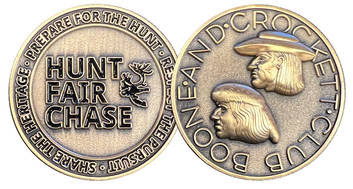Ethical Values Matter
By Glen Wunderlich
The notion of hunting ethics may conjure up different meanings among hunters and non-hunters alike, and with hunting season beginning in earnest this month, sharing some thoughts without getting too deep in the weeds seems worthwhile. In a nutshell maybe it’s as simple as hunting in a manner in which hunters can be proud beyond following regulations, although that’s a good place to start.
Hunters make up a very small percentage of adults in the United States – only about 5 percent. Although support for hunting remains high among the population, it behooves all of us to reflect upon the successful American model that has returned so many wild animals to today’s sustainable use.
Hunters pay for the privilege to manage game animals, and without them, we’d all have to find the means to control wildlife in decreasing available land. Paying sharpshooters has its price. And, any hands-off approach, which would allow Mother Nature to take its course, would mean needless suffering and starvation among wildlife species. As with any management strategy, there’s always room for improvement, so here goes.
Take the time to become thoroughly familiar with archery equipment or firearms. The consequences for not doing so will translate into more hunting accidents and wounded game – neither of which puts hunting in a good light. Familiarity brings with it the single-shot mentality and the confidence to not only take good shots, but the patience to wait for them. It may be legal to take marginal shots at game, but ethical hunters know their limitations and hunt within them. Image matters.
Sharing your successes with fellow hunters can be a good thing; doing so may educate and entertain. On the other hand, rubbing it in the noses of the general public may be viewed as offensive. Heck, even spiking a football after a touchdown is no longer acceptable behavior and will draw more than a penalty; it draws the ire of those not on your side or even those somewhat ambivalent. Learn to take tasteful photos that are to be shared. Plus, while transporting game, it’s not necessary to display your prize to the world. Discretion has its rewards.
Slobs are everywhere and probably always will be. We can be better representatives of the hunting community by cleaning up after ourselves. A careful inspection of camp ground sites with an eye for litter can go a long way toward a cleaner image. A good scout is taught to leave the land cleaner than it was when found and wise hunters would do well to follow this advice. Respecting the land is ethical.
The ethics of hunting carries with it personal preference relative to equipment used, but it’s more of in respect for the game animals being pursued, the environment, land owners, and yes, non-hunters. What we leave behind – be it physical or intangible – becomes our legacy.
“A peculiar virtue in wildlife ethics is that the hunter ordinarily has no gallery to applaud or disapprove of his conduct. Whatever his acts, they are dictated by his own conscience, rather than a mob of onlookers. It is difficult to exaggerate this fact”…Aldo Leopold, A Sand County Almanac





